#Provence Languedoc
Text
Solo Travel Tips and Wisdom
Solo Travel Tips and Wisdom

View On WordPress
#About Uzes#barefoot blogger#expat in Uzes#expat over 60#female expat living in Uzes#Female traveling alone#living in south of france#over 60 solo travel#Provence Languedoc
0 notes
Text

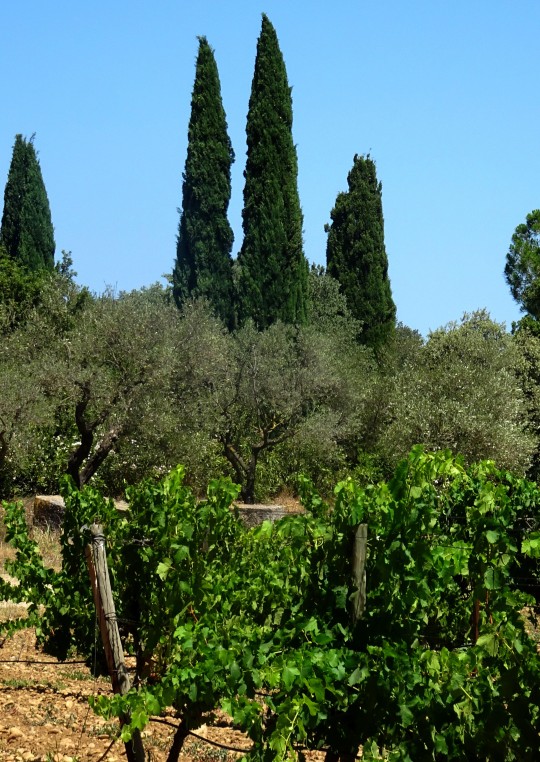


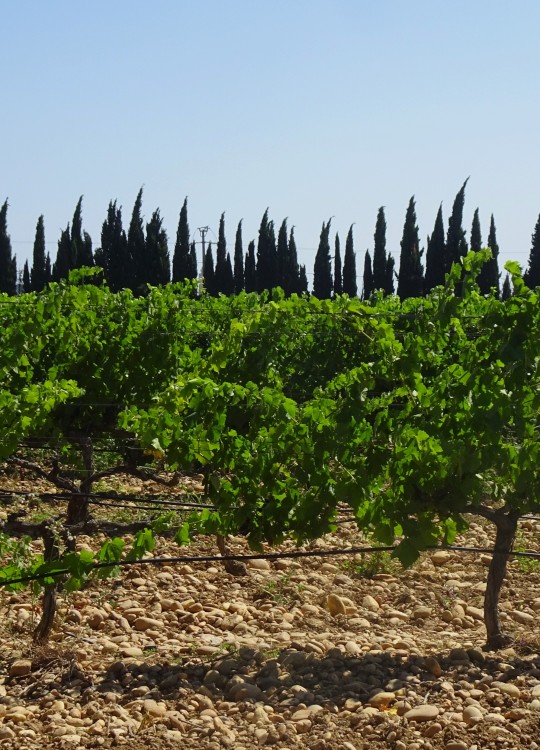

La semaine dernière, j'ai retrouvé mes amis Julien et Katie à Remoulins dans le Gard (Languedoc). On a visité, près de Beaucaire (dans le Languedoc sur la carte, mais en Provence par l'âme ) le Mas des Tourelles.
Ici , un condensé de Provence : vignes, oliviers, cyprès et cigales !
#beaucaire#languedoc#gard#provence#vigne#raisin#viticulture#mas des tourelles#cigale#cicada#cyprès#olivier
10 notes
·
View notes
Text
Hair. (French Folks Traditions.) part 1.
In Pliny (Natural History, book 11) it is mentioned that man is the one of all animals who has the longest hair, especially the "hairy", inhabitants of the Alps and Gaul.
For a long time, women's hair has been a sexual symbol that should be hidden with a veil or a bonnet.
Since the Middle Ages, only young girls have the right to go out bareheaded. According to demonologists, devils have a particular taste for women's hair.
-
To comb your hair :
In the 19th century, to have beautiful hair and find a husband, you had to comb your hair in the moonlight (Provence.)
However, if a woman combs her hair while walking in the countryside, evil spirits will immediately come and grab her by the hair (Alpes-Maritimes.)
In Normandy, surprising a woman combing her hair when you enter a house is a bad omen.
In Puy de Dôme, the woman who wants to receive communion in church must comb her hair the day before midnight, but never the same day.
In the 17th century, Abbot Thiers reported that combing your hair on Friday brought lice.

Cutting your hair :
The phases of the moon have a direct influence on the growth and beauty of hair. Depending on the region, opinions differ as to the best time :
They must be cut at the new moon but they will fall early (Vosges, Berry.)
They must be cut at the end of the new moon, but never during the full moon if you do not want to get sick. (Côtes d’Armor.)
In Poitou, it is recommended not to cut children's hair in May, lest they go crazy.
We avoid colds if we cut them on Friday in Bas Languedoc.
In the Northern Alps, the new moon was preferred, but it had to be absolutely waxing. At that time the hair grew back quickly and vigorously.
-
Magic Medicine :
Recipe to avoid losing your hair (Lorraine) : apply to your scalp a wild cat skin that has been soaked with cow urine for 7 days. Then rub your head with butter made with the milk of a black cow that does not go to pasture, or wash your head with sow's milk.
To avoid being hoarse, there's nothing like a lock of hair stuffed in your mouth (Brittany.)
To avoid headaches all year round, you must comb your hair before sunrise on Good Friday, in Moselle.
-
[Excerpts taken from M.C Delmas in Dictionnaire de la France Mystérieuse, and from my grandmother's memories.]
pic source
Part 2 "love magic" here.
98 notes
·
View notes
Text

Chapter V. Third Period. — Competition.
2. — Subversive effects of competition, and the destruction of liberty thereby.
The kingdom of heaven suffereth violence, says the Gospel, and the violent take it by force. These words are the allegory of society. In society regulated by labor, dignity, wealth, and glory are objects of competition; they are the reward of the strong, and competition may be defined as the regime of force. The old economists did not at first perceive this contradiction: the moderns have been forced to recognize it.
“To elevate a State from the lowest degree of barbarism to the highest degree of opulence,” wrote A. Smith, “but three things are necessary, — peace, moderate taxes, and a tolerable administration of justice. All the rest is brought about by the natural course of things.”
On which the last translator of Smith, M. Blanqui, lets fall this gloomy comment:
We have seen the natural course of things produce disastrous effects, and create anarchy in production, war for markets, and piracy in competition. The division of labor and the perfecting of machinery, which should realize for the great working family of the human race the conquest of a certain amount of leisure to the advantage of its dignity, have produced at many points nothing but degradation and misery..... When A. Smith wrote, liberty had not yet come with its embarrassments and its abuses, and the Glasgow professor foresaw only its blessings... Smith would have written like M. de Sismondi, if he had been a witness of the sad condition of Ireland and the manufacturing districts of England in the times in which we live.
Now then, litterateurs, statesmen, daily publicists, believers and half-believers, all you who have taken upon yourselves the mission of indoctrinating men, do you hear these words which one would take for a translation from Jeremiah? Will you tell us at last to what end you pretend to be conducting civilization? What advice do you offer to society, to the country, in alarm?
But to whom do I speak? Ministers, journalists, sextons, and pedants! Do such people trouble themselves about the problems of social economy? Have they ever heard of competition?
A citizen of Lyons, a soul hardened to mercantile war, travelled in Tuscany. He observes that from five to six hundred thousand straw hats are made annually in that country, the aggregate value of which amounts to four or five millions of francs. This industry is almost the sole support of the people of the little State. “How is it,” he says to himself, “that so easily conducted a branch of agriculture and manufactures has not been transported into Provence and Languedoc, where the climate is the same as in Tuscany?” But, thereupon observes an economist, if the industry of the peasants of Tuscany is taken from them, how will they contrive to live?
The manufacture of black silks had become for Florence a specialty the secret of which she guarded preciously.
A shrewd Lyons manufacturer, the tourist notices with satisfaction, has come to set up an establishment in Florence, and has finally got possession of the peculiar processes of dyeing and weaving. Probably this discovery will diminish Florentine exportation. — A Journey in Italy, by M. FULCHIRON.
Formerly the breeding of the silk-worm was abandoned to the peasants of Tuscany; whom it aided to live.
Agricultural societies have been formed; they have represented that the silk-worm, in the peasant’s sleeping-room, did not get sufficient ventilation or sufficient steadiness of temperature, or as good care as it would have if the laborers who breed them made it their sole business. Consequently rich, intelligent, and generous citizens have built, amid the applause of the public, what are called bigattieres (from bigatti, silk-worm). — M. DE SISMONDI.
And then, you ask, will these breeders of silk-worms, these manufacturers of silks and hats, lose their work? Precisely: it will even be proved to them that it is for their interest that they should, since they will be able to buy the same products for less than it costs them to manufacture them. Such is competition.
Competition, with its homicidal instinct, takes away the bread of a whole class of laborers, and sees in it only an improvement, a saving; it steals a secret in a cowardly manner, and glories in it as a discovery; it changes the natural zones of production to the detriment of an entire people, and pretends to have done nothing but utilize the advantages of its climate. Competition overturns all notions of equity and justice; it increases the real cost of production by needlessly multiplying the capital invested, causes by turns the dearness of products and their depreciation, corrupts the public conscience by putting chance in the place of right, and maintains terror and distrust everywhere.
But what! Without this atrocious characteristic, competition would lose its happiest effects; without the arbitrary element in exchange and the panics of the market, labor would not continually build factory against factory, and, not being maintained in such good working order, production would realize none of its marvels. After having caused evil to arise from the very utility of its principle, competition again finds a way to extract good from evil; destruction engenders utility, equilibrium is realized by agitation, and it may be said of competition, as Samson said of the lion which he had slain: De comedente cibus exiit, et de forti dulcedo. Is there anything, in all the spheres of human knowledge, more surprising than political economy?
Let us take care, nevertheless, not to yield to an impulse of irony, which would be on our part only unjust invective. It is characteristic of economic science to find its certainty in its contradictions, and the whole error of the economists consists in not having understood this. Nothing poorer than their criticism, nothing more saddening than their mental confusion, as soon as they touch this question of competition: one would say that they were witnesses forced by torture to confess what their conscience would like to conceal. The reader will take it kindly if I put before his eyes the arguments for laissez-passer, introducing him, so to speak, into the presence of a secret meeting of economists.
M. Dunoyer opens the discussion.
Of all the economists M. Dunoyer has most energetically embraced the positive side of competition, and consequently, as might have been expected, most ineffectually grasped the negative side. M. Dunoyer, with whom nothing can be done when what he calls principles are under discussion, is very far from believing that in matters of political economy yes and no may be true at the same moment and to the same extent; let it be said even to his credit, such a conception is the more repugnant to him because of the frankness and honesty with which he holds his doctrines. What would I not give to gain an entrance into this pure but so obstinate soul for this truth as certain to me as the existence of the sun, — that all the categories of political economy are contradictions! Instead of uselessly exhausting himself in reconciling practice and theory; instead of contenting himself with the ridiculous excuse that everything here below has its advantages and its inconveniences, — M. Dunoyer would seek the synthetic idea which solves all the antinomies, and, instead of the paradoxical conservative which he now is, he would become with us an inexorable and logical revolutionist.
“If competition is a false principle,” says M. Dunoyer, “it follows that for two thousand years humanity has been pursuing the wrong road.”
No, what you say does not follow, and your prejudicial remark is refuted by the very theory of progress. Humanity posits its principles by turns, and sometimes at long intervals: never does it give them up in substance, although it destroys successively their expressions and formulas. This destruction is called negation; because the general reason, ever progressive, continually denies the completeness and sufficiency of its prior ideas. Thus it is that, competition being one of the periods in the constitution of value, one of the elements of the social synthesis, it is true to say at the same time that it is indestructible in its principle, and that nevertheless in its present form it should be abolished, denied. If, then, there is any one here who is in opposition to history, it is you.
I have several remarks to make upon the accusations of which competition has been the object. The first is that this regime, good or bad, ruinous or fruitful, does not really exist as yet; that it is established nowhere except in a partial and most incomplete manner.
This first observation has no sense. Competition kills competition, as we said at the outset; this aphorism may be taken for a definition. How, then, could competition ever be complete? Moreover, though it should be admitted that competition does not yet exist in its integrity, that would simply prove that competition does not act with all the power of elimination that there is in it; but that will not change at all its contradictory nature. What need have we to wait thirty centuries longer to find out that, the more competition develops, the more it tends to reduce the number of competitors?
The second is that the picture drawn of it is unfaithful; and that sufficient heed is not paid to the extension which the general welfare has undergone, including even that of the laboring classes.
If some socialists fail to recognize the useful side of competition, you on your side make no mention of its pernicious effects. The testimony of your opponents coming to complete your own, competition is shown in the fullest light, and from a double falsehood we get the truth as a result. As for the gravity of the evil, we shall see directly what to think about that.
The third is that the evil experienced by the laboring classes is not referred to its real causes.
If there are other causes of poverty than competition, does that prevent it from contributing its share? Though only one manufacturer a year were ruined by competition, if it were admitted that this ruin is the necessary effect of the principle, competition, as a principle, would have to be rejected.
The fourth is that the principal means proposed for obviating it would be inexpedient in the extreme.
Possibly: but from this I conclude that the inadequacy of the remedies proposed imposes a new duty upon you, — precisely that of seeking the most expedient means of preventing the evil of competition.
The fifth, finally, is that the real remedies, in so far as it is possible to remedy the evil by legislation, would be found precisely in the regime which is accused of having produced it, — that is, in a more and more real regime of liberty and competition.
Well! I am willing. The remedy for competition, in your opinion, is to make competition universal. But, in order that competition may be universal, it is necessary to procure for all the means of competing; it is necessary to destroy or modify the predominance of capital over labor, to change the relations between employer and workman, to solve, in a word, the antinomy of division and that of machinery; it is necessary to ORGANIZE LABOR: can you give this solution?
M. Dunoyer then develops, with a courage worthy of a better cause, his own utopia of universal competition: it is a labyrinth in which the author stumbles and contradicts himself at every step.
“Competition,” says M. Dunoyer, “meets a multitude of obstacles.”
In fact, it meets so many and such powerful ones that it becomes impossible itself. For how is triumph possible over obstacles inherent in the constitution of society and consequently inseparable from competition itself?
In addition to the public services, there is a certain number of professions the practice of which the government has seen fit to more or less exclusively reserve; there is a larger number of which legislation has given a monopoly to a restricted number of individuals. Those which are abandoned to competition are subjected to formalities and restrictions, to numberless barriers, which keep many from approaching, and in these consequently competition is far from being unlimited. In short, there are few which are not submitted to varied taxes, necessary doubtless, etc.
What does all this mean? M. Dunoyer doubtless does not intend that society shall dispense with government, administration, police, taxes, universities, in a word, with everything that constitutes a society. Then, inasmuch as society necessarily implies exceptions to competition, the hypothesis of universal competition is chimerical, and we are back again under the regime of caprice, — a result foretold in the definition of competition. Is there anything serious in this reasoning of M. Dunoyer?
Formerly the masters of the science began by putting far away from them every preconceived idea, and devoted themselves to tracing facts back to general laws, without ever altering or concealing them. The researches of Adam Smith, considering the time of their appearance, are a marvel of sagacity and lofty reasoning. The economic picture presented by Quesnay, wholly unintelligible as it appears, gives evidence of a profound sentiment of the general synthesis. The introduction to J. B. Say’s great treatise dwells exclusively upon the scientific characteristics of political economy, and in every line is to be seen how much the author felt the need of absolute ideas. The economists of the last century certainly did not constitute the science, but they sought this constitution ardently and honestly.
How far we are today from these noble thoughts! No longer do they seek a science; they defend the interests of dynasty and caste. The more powerless routine becomes, the more stubbornly they adhere to it; they make use of the most venerated names to stamp abnormal phenomena with a quality of authenticity which they lack; they tax accusing facts with heresy; they calumniate the tendencies of the century; and nothing irritates an economist so much as to pretend to reason with him.
“The peculiar characteristic of the present time,” cries M. Dunoyer, in a tone of keen discontent, “is the agitation of all classes; their anxiety, their inability to ever stop at anything and be contented; the infernal labor performed upon the less fortunate that they may become more and more discontented in proportion to the increased efforts of society to make their lot really less pitiful.”
Indeed! Because the socialists goad political economy, they are incarnate devils! Can there be anything more impious, in fact, than to teach the proletaire that he is wronged in his labor and his wages, and that, in the surroundings in which he lives, his poverty is irremediable?
M. Reybaud repeats, with greater emphasis, the wail of his master, M. Dunoyer: one would think them the two seraphim of Isaiah chanting a Sanctus to competition. In June, 1844, at the time when he published the fourth edition of his “Contemporary Reformers,” M. Reybaud wrote, in the bitterness of his soul:
To socialists we owe the organization of labor, the right to labor; they are the promoters of the regime of surveillance.... The legislative chambers on either side of the channel are gradually succumbing to their influence.... Thus utopia is gaining ground....
And M. Reybaud more and more deplores the secret influence of socialism on the best minds, and stigmatizes — see the malice! — the unperceived contagion with which even those who have broken lances against socialism allow themselves to be inoculated. Then he announces, as a last act of his high justice against the wicked, the approaching publication, under the title of “Laws of Labor,” of a work in which he will prove (unless some new evolution takes place in his ideas) that the laws of labor have nothing in common, either with the right to labor or with the organization of labor, and that the best of reforms is laissez-faire.
“Moreover,” adds M. Reybaud, “the tendency of political economy is no longer to theory, but to practice. The abstract portions of the science seem henceforth fixed. The controversy over definitions is exhausted, or nearly so. The works of the great economists on value, capital, supply and demand, wages, taxes, machinery, farm-rent, increase of population, over-accumulation of products, markets, banks, monopolies, etc., seem to have set the limit of dogmatic researches, and form a body of doctrine beyond which there is little to hope.”
Facility of speech, impotence in argument, — such would have been the conclusion of Montesquieu upon this strange panegyric of the founders of social economy. THE SCIENCE IS COMPLETE! M. Reybaud makes oath to it; and what he proclaims with so much authority is repeated at the Academy, in the professors’ chairs, in the councils of State, in the legislative halls; it is published in the journals; the king is made to say it in his New Year’s addresses; and before the courts the cases of claimants are decided accordingly.
THE SCIENCE IS COMPLETE! What fools we are, then, socialists, to hunt for daylight at noonday, and to protest, with our lanterns in our hands, against the brilliancy of these solar rays!
But, gentlemen, it is with sincere regret and profound distrust of myself that I find myself forced to ask you for further light. If you cannot cure our ills, give us at least kind words, give us evidence, give us resignation.
“It is obvious,” says M. Dunoyer, “that wealth is infinitely better distributed in our day than it ever has been.”
“The equilibrium of pains and pleasures,” promptly continues M. Reybaud, “ever tends to restore itself on earth.”
What, then! What do you say? Wealth better distributed, equilibrium restored! Explain yourselves, please, as to this better distribution. Is equality coming, or inequality going? Is solidarity becoming closer, or competition diminishing? I will not quit you until you have answered me, non missura cutem.... For, whatever the cause of the restoration of equilibrium and of the better distribution which you point out, I embrace it with ardor, and will follow it to its last consequences. Before 1830 — I select the date at random — wealth was not so well distributed: how so? Today, in your opinion, it is better distributed: why? You see what I am coming at: distribution being not yet perfectly equitable and the equilibrium not absolutely perfect, I ask, on the one hand, what obstacle it is that disturbs the equilibrium, and, on the other, by virtue of what principle humanity continually passes from the greater to the less evil and from the good to the better? For, in fact, this secret principle of amelioration can be neither competition, nor machinery, nor division of labor, nor supply and demand: all these principles are but levers which by turns cause value to oscillate, as the Academy of Moral Sciences has very clearly seen. What, then, is the sovereign law of well-being? What is this rule, this measure, this criterion of progress, the violation of which is the perpetual cause of poverty? Speak, and quit your haranguing.
Wealth is better distributed, you say. Show us your proofs.
M. Dunoyer:
According to official documents, taxes are assessed on scarcely less than eleven million separate parcels of landed property. The number of proprietors by whom these taxes are paid is estimated at six millions; so that, assuming four individuals to a family, there must be no less than twenty-four million inhabitants out of thirty-four who participate in the ownership of the soil.
Then, according to the most favorable figures, there must be ten million proletaires in France, or nearly one-third of the population. Now, what have you to say to that? Add to these ten millions half of the twenty-four others, whose property, burdened with mortgages, parcelled out, impoverished, wretched, gives them no support, and still you will not have the number of individuals whose living is precarious.
The number of twenty-four million proprietors perceptibly tends to increase.
I maintain that it perceptibly tends to decrease. Who is the real proprietor, in your opinion, — the nominal holder, assessed, taxed, pawned, mortgaged, or the creditor who collects the rent? Jewish and Swiss money-lenders are today the real proprietors of Alsace; and proof of their excellent judgment is to be found in the fact that they have no thought of acquiring landed estates: they prefer to invest their capital.
To the landed proprietors must be added about fifteen hundred thousand holders of patents and licenses, or, assuming four persons to a family, six million individuals interested as leaders in industrial enterprises.
But, in the first place, a great number of these licensed individuals are landed proprietors, and you count them twice. Further, it may be safely said that, of the whole number of licensed manufacturers and merchants, a fourth at most realize profits, another fourth hold their own, and the rest are constantly running behind in their business. Take, then, half at most of the six million so-called leaders in enterprises, which we will add to the very problematical twelve million landed proprietors, and we shall attain a total of fifteen million Frenchmen in a position, by their education, their industry, their capital, their credit, their property, to engage in competition. For the rest of the nation, or nineteen million souls, competition, like Henri IV.’s pullet in the pot, is a dish which they produce for the class which can pay for it, but which they never touch.
Another difficulty. These nineteen million men, within whose reach competition never comes, are hirelings of the competitors. In the same way formerly the serfs fought for the lords, but without being able themselves to carry a banner or put an army on foot. Now, if competition cannot by itself become the common condition, why should not those for whom it offers nothing but perils, exact guarantees from the barons whom they serve? And if these guarantees can not be denied them, how could they be other than barriers to competition, just as the truce of God, invented by the bishops, was a barrier to feudal wars? By the constitution of society, I said a little while ago, competition is an exceptional matter, a privilege; now I ask how it is possible for this privilege to coexist with equality of rights?
And think you, when I demand for consumers and wage-receivers guarantees against competition, that it is a socialist’s dream? Listen to two of your most illustrious confreres, whom you will not accuse of performing an infernal work.
M. Rossi (Volume I, Lecture 16) recognizes in the State the right to regulate labor, when the danger is too great and the guarantees insufficient, which means always. For the legislator must secure public order by principles and laws: he does not wait for unforeseen facts to arise in order that he may drive them back with an arbitrary hand. Elsewhere (Volume II, pp. 73–77) the same professor points out, as consequences of exaggerated competition, the incessant formation of a financial and landed aristocracy and the approaching downfall of small holders, and he raises the cry of alarm. M. Blanqui, on his side, declares that the organization of labor is recognized by economic science as in the order of the day (he has since retracted the statement), urges the participation of workers in the profits and the advent of the collective laborer, and thunders continually against the monopolies, prohibitions, and tyranny of capital. Qui habet aures audiendi audiat! M. Rossi, as a writer on criminal law, decrees against the robberies of competition; M. Blanqui, as examining magistrate, proclaims the guilty parties: it is the counterpart of the duet sung just now by MM. Reybaud and Dunoyer. When the latter cry Hosanna, the former respond, like the Fathers in the Councils, Anathema.
But, it will be said, MM. Blanqui and Rossi mean to strike only the abuses of competition; they have taken care not to proscribe the principle, and in that they are thoroughly in accord with MM. Reybaud and Dunoyer.
I protest against this distinction, in the interest of the fame of the two professors.
In fact, abuse has invaded everything, and the exception has become the rule. When M. Troplong, defending, with all the economists, the liberty of commerce, admitted that the coalition of the cab companies was one of those facts against which the legislator finds himself absolutely powerless, and which seem to contradict the sanest notions of social economy, he still had the consolation of saying to himself that such a fact was wholly exceptional, and that there was reason to believe that it would not become general. Now, this fact has become general: the most conservative jurisconsult has only to put his head out of his window to see that today absolutely everything has been monopolized through competition, — transportation (by land, rail, and water), wheat and flour, wine and brandy, wood, coal, oil, iron, fabrics, salt, chemical products, etc. It is sad for jurisprudence, that twin sister of political economy, to see its grave anticipations contradicted in less than a lustre, but it is sadder still for a great nation to be led by such poor geniuses and to glean the few ideas which sustain its life from the brushwood of their writings.
In theory we have demonstrated that competition, on its useful side, should be universal and carried to its maximum of intensity; but that, viewed on its negative side, it must be everywhere stifled, even to the last vestige. Are the economists in a position to effect this elimination? Have they foreseen the consequences, calculated the difficulties? If the answer should be affirmative, I should have the boldness to propose the following case to them for solution.
A treaty of coalition, or rather of association, — for the courts would be greatly embarrassed to define either term, — has just united in one company all the coal mines in the basin of the Loire. On complaint of the municipalities of Lyons and Saint Etienne, the ministry has appointed a commission charged with examining the character and tendencies of this frightful society. Well, I ask, what can the intervention of power, with the assistance of civil law and political economy, accomplish here?
They cry out against coalition. But can the proprietors of mines be prevented from associating, from reducing their general expenses and costs of exploitation, and from working their mines to better advantage by a more perfect understanding with each other? Shall they be ordered to begin their old war over again, and ruin themselves by increased expenses, waste, over-production, disorder, and decreased prices? All that is absurd.
Shall they be prevented from increasing their prices so as to recover the interest on their capital? Then let them be protected themselves against any demands for increased wages on the part of the workmen; let the law concerning joint-stock companies be reenacted; let the sale of shares be prohibited; and when all these measures shall have been taken, as the capitalist-proprietors of the basin cannot justly be forced to lose capital invested under a different condition of things, let them be indemnified.
Shall a tariff be imposed upon them? That would be a law of maximum. The State would then have to put itself in the place of the exploiters; keep the accounts of their capital, interest, and office expenses; regulate the wages of the miners, the salaries of the engineers and directors, the price of the wood employed in the extraction of the coal, the expenditure for material; and, finally, determine the normal and legitimate rate of profit. All this cannot be done by ministerial decree: a law is necessary. Will the legislator dare, for the sake of a special industry, to change the public law of the French, and put power in the place of property? Then of two things one: either commerce in coals will fall into the hands of the State, or else the State must find some means of reconciling liberty and order in carrying on the mining industry, in which case the socialists will ask that what has been executed at one point be imitated at all points.
The coalition of the Loire mines has posited the social question in terms which permit no more evasion. Either competition, — that is, monopoly and what follows; or exploitation by the State, — that is, dearness of labor and continuous impoverishment; or else, in short, a solution based upon equality, — in other words, the organization of labor, which involves the negation of political economy and the end of property.
But the economists do not proceed with this abrupt logic: they love to bargain with necessity. M. Dupin (session of the Academy of Moral and Political Sciences, June 10, 1843) expresses the opinion that, “though competition may be useful within the nation, it must be prevented between nations.”
To prevent or to let alone, — such is the eternal alternative of the economists: beyond it their genius does not go. In vain is it cried out at them that it is not a question of preventing anything or of permitting everything; that what is asked of them, what society expects of them, is a reconciliation: this double idea does not enter their head.
“It is necessary,” M. Dunoyer replies to M. Dupin, “to distinguish theory from practice.”
My God! everybody knows that M. Dunoyer, inflexible as to principles in his works, is very accommodating as to practice in the Council of State. But let him condescend to once ask himself this question: Why am I obliged to continually distinguish practice from theory? Why do they not harmonize?
M. Blanqui, as a lover of peace and harmony, supports the learned M. Dunoyer, — that is, theory. Nevertheless he thinks, with M. Dupin, — that is, with practice, — that competition is not exempt from reproach. So afraid is M. Blanqui of calumniating and stirring up the fire!
M. Dupin is obstinate in his opinion. He cites, as evils for which competition is responsible, fraud, sale by false weights, the exploitation of children. All doubtless in order to prove that competition within the nation may be useful!
M. Passy, with his usual logic, observes that there will always be dishonest people who, etc. Accuse human nature, he cries, but not competition.
At the very outset M. Passy’s logic wanders from the question. Competition is reproached with the inconveniences which result from its nature, not with the frauds of which it is the occasion or pretext. A manufacturer finds a way of replacing a workman who costs him three francs a day by a woman to whom he gives but one franc. This expedient is the only one by which he can meet a falling market and keep his establishment in motion. Soon to the working women he will add children. Then, forced by the necessities of war, he will gradually reduce wages and add to the hours of labor. Where is the guilty party here? This argument may be turned about in a hundred ways and applied to all industries without furnishing any ground for accusing human nature.
M. Passy himself is obliged to admit it when he adds: “As for the compulsory labor of children, the fault is on the parents.” Exactly. And the fault of the parents on whom?
“In Ireland,” continues this orator, “there is no competition, and yet poverty is extreme.”
On this point M. Passy’s ordinary logic has been betrayed by an extraordinary lack of memory. In Ireland there is a complete, universal monopoly of the land, and unlimited, desperate competition for farms. Competition-monopoly are the two balls which unhappy Ireland drags, one after each foot.
When the economists are tired of accusing human nature, the greed of parents, and the turbulence of radicals, they find delectation in picturing the felicity of the proletariat. But there again they cannot agree with each other or with themselves; and nothing better depicts the anarchy of competition than the disorder of their ideas.
Today the wife of the workingman dresses in elegant robes which in a previous century great ladies would not have disdained. — M. Chevalier: Lecture 4.
And this is the same M. Chevalier who, according to his own calculation, estimates that the total national income would give thirteen cents a day to each individual. Some economists even reduce this figure to eleven cents. Now, as all that goes to make up the large fortunes must come out of this sum, we may accept the estimate of M. de Morogues that the daily income of half the French people does not exceed five cents each.
“But,” continues M. Chevalier, with mystical exaltation, “does not happiness consist in the harmony of desires and enjoyments, in the balance of needs and satisfactions? Does it not consist in a certain condition of soul, the conditions of which it is not the function of political economy to prevent, and which it is not its mission to engender? This is the work of religion and philosophy.”
Economist, Horace would say to M: Chevalier, if he were living at the present day, attend simply to my income, and leave me to take care of my soul: Det vitam, det opes; oequum mi animum ipse parabo.
M. Dunoyer again has the floor:
It would be easy, in many cities, on holidays, to confound the working class with the bourgeois class [why are there two classes?], so fine is the dress of the former. No less has been the progress in nourishment. Food is at once more abundant, more substantial, and more varied. Bread is better everywhere. Meat, soup, white bread, have become, in many factory towns, infinitely more common than they used to be. In short, the average duration of life has been raised from thirty-five years to forty.
Farther on M. Dunoyer gives a picture of English fortunes according to Marshall. It appears from this picture that in England two million five hundred thousand families have an income of only two hundred and forty dollars. Now, in England an income of two hundred and forty dollars corresponds to an income of one hundred and forty-six dollars in our country, which, divided between four persons, gives each thirty-six dollars and a half, or ten cents a day. That is not far from the thirteen cents which M. Chevalier allows to each individual in France: the difference in favor of the latter arises from the fact that, the progress of wealth being less advanced in France, poverty is likewise less. What must one think of the economists’ luxuriant descriptions or of their figures?
“Pauperism has increased to such an extent in England,” confesses M. Blanqui, “that the English government has had to seek a refuge in those frightful work-houses”....
As a matter of fact, those pretended work-houses, where the work consists in ridiculous and fruitless occupations, are, whatever may be said, simply torture-houses. For to a reasonable being there is no torture like that of turning a mill without grain and without flour, with the sole purpose of avoiding rest, without thereby escaping idleness.
“This organization [the organization of competition],” continues M. Blanqui, “tends to make all the profits of labor pass into the hands of capital.... It is at Reims, at Mulhouse, at Saint-Quentin, as at Manchester, at Leeds, at Spitalfields, that the existence of the workers is most precarious”....
Then follows a frightful picture of the misery of the work-ers. Men, women, children, young girls, pass before you, starved, blanched, ragged, wan, and wild. The description ends with this stroke:
The workers in the mechanical industries can no longer supply recruits for the army.
It would seem that these do not derive much benefit from M. Dunoyer’s white bread and soup.
M. Villerme regards the licentiousness of young working girls as inevitable. Concubinage is their customary status; they are entirely subsidized by employers, clerks, and students. Although as a general thing marriage is more attractive to the people than to the bourgeoisie, there are many proletaires, Malthusians without knowing it, who fear the family and go with the current. Thus, as workingmen are flesh for cannon, workingwomen are flesh for prostitution: that explains the elegant dressing on Sunday. After all, why should these young women be expected to be more virtuous than their mistresses?
M. Buret, crowned by the Academy:
I affirm that the working class is abandoned body and soul to the good pleasure of industry.
The same writer says elsewhere:
The feeblest efforts of speculation may cause the price of bread to vary a cent a pound and more: which represents $124,100 for thirty-four million men.
I may remark, in passing, that the much-lamented Buret regarded the idea of the existence of monopolists as a popular prejudice. Well, sophist! monopolist or speculator, what matters the name, if you admit the thing?
Such quotations would fill volumes. But the object of this treatise is not to set forth the contradictions of the economists and to wage fruitless war upon persons. Our object is loftier and worthier: it is to unfold the System of Economical Contradictions, which is quite a different matter. Therefore we will end this sad review here; and, before concluding, we will throw a glance at the various means proposed whereby to remedy the inconveniences of competition.
#organization#revolution#anarchism#daily posts#communism#anti capitalist#anti capitalism#late stage capitalism#anarchy#anarchists#libraries#leftism#social issues#economy#economics#climate change#anarchy works#environmentalism#environment#solarpunk#anti colonialism#mutual aid#the system of economic contradictions#the philosophy of poverty#volume i#pierre-joseph proudhon#pierre joseph proudhon
15 notes
·
View notes
Text
Mon top 13 (pas d'ordre précis)
Guyane
Poitou-Charentes
Midi-Pyrénées
Languedoc
Bourgogne
Tahiti
Provence
Normandie
Pays de la Loire
Côte d'Azur
Martinique
Guadeloupe
Centre
Pour l'instant, ma préférée est Guyane qui est INCROYABLE mais peur qu'elle soit trop jeune et qu'elle ait merdé les parties où être belle ne suffit pas
13 notes
·
View notes
Text
Weird Winds: A map of French winds
If you do not know, France doesn't just have one or two or four winds. When you look at the winds of France, you won't just find your typical cardinal division East/West/North/South. Oh no! You will get tons and tons of winds, with all sorts of bizarre names. Each region has its own set of winds, with its own names, meteorological effects, and cultural associations. The result is that people can write entire books about the French winds just by listing them all.
I just found a little website that can serve as a good introduction to the winds of France. It is a website dedicated to learning French when you're a foreigner, and it has one tiny page about the winds of France. It notably offers this simplified map selecting fifteen winds:

Here is the list of the winds, corresponding to the numbers on the map.
Le suroît. A South wind of the Bretagne region, hot and humid.
Le nordet. A Bretagne North wind, that makes the air colder and causes downpours.
La bise. A dry and cold North wind.
La bise. (Yes, they put it twice)
Baslerwind, an Eastern wind of Alsace.
La lombarde. A dry and violent winds of the Alps and the Savoie region.
La tramontane. A violent wind of the Languedoc and the Roussillon.
Le levant. The gentle and humid East wind.
Le ponant. The (usually) soft, Mediterranean West wind.
Le sirocco. The hot wind that carries into France the Sahara sands.
Le cers. The West wind of the Roussillon region, known to scatter clouds away and bring a sunny weather. The cers is considered a componants of the tramontane.
L'autan. An often strong sea wind, that blows in the opposite direction of the tramontane in the Toulouse region and the Tarn. It can be gentler or colder depending on the places.
La tramontane. A cold and strong wind that blows in the Languedoc-Roussillon. It is also the North wind of Provence.
La galerne. A local wind of the Pays Basque, which blows by "hits" (in an irregular way). Through strong gusts, it lowers the temperature and brings rain.
Le mistral. A typical wind of Provence, which also blows in the Var region and in Corsica. It is known to usually blow several days in a row.
The website also had links to other pages that explained in greater details a handful of those winds. I'll put the explanations below:
A) Le Ponant. When it comes to regional Mediterranean winds, le Mistral or la Tramontane usually come to mind - but people tend to forget le Ponant, whose name indicates its position as the West wind. "Ponant" itself is a Latin-inherited term designating the place where the sun sets (opposing the "levant", where the sun rises), and thus in terms of winds, le ponant wind is the west wind, opposed to the Levant wind, the east wind. However, originally, the sailors used "ponant" and "levant" merely as cardinal directions (West/East), and by extension to designate the two bodies of water they travelled across: the Ponant was the Atlantic Ocean, the Levant the Mediterranean Sea. As such, the French sailors called the "Ponant ports" towns such as Brest or La Rochelle, and "Levant ports" Marseille or Sète. It was only afterward that the two terms came to designate the East and West winds.
The Ponant is a western wind with southern components. It is usually soft and gentle, especially when it blows from the south-west, even though it can be strong on the Balearic area. While it blows all year long, it is most present during spring and autumn.
B) Autan. The autan wind is known for its violence by the inhabitants of the Tarn and Toulouse regions. It is even often called "the mad wind" or the "insane wind". The Autan is one of the three local winds of the Occitanie region, alongside the Tramontane and the Marin. While it is mostly focused on Tarn and Toulouse, it can sometimes touch Quercy and Rouerge. The autan is actually the prolongation of the sea-wind blowing on the coasts of the Languedoc-Roussillon. The "triangle" between which the Autan is the most common is formed by Toulouse, Castelnaudary and Castres. It forms the opposite of the tramontane, which comes from the Mediterranean sea. The autan wind can go from 10 km per hour to 90 km per hour in the span of just two hours, and it can come back several times throughout the year.
Legend claims that the autan wind drives people mad - the superstition seems to come from the fact that the autan wind is very local, meaning in a precise area it can blow very strongly, while it is still and peaceful right next door. This is because the Autan is created by the presence of the Pyrénées, the wind being "channeled" by a series of valleys (the Agout valley, the Tarn valley, the Lauragais-Garonne). When the wind arrives from the Mediterranean sea, it is very humid, but by the foehn effect it dries up by going over the Corbières and the Black mountain - and it is only once the wind is dried up that it becomes the "autan". There are actually two types of autan according to local beliefs, the "white" autan and the "black" autan. [Note: the website unfortunately does not give the exact difference between the two]
C) Le Cers. "Le cers" is actually one of the oldest, if not THE oldest wind-name in the French language. Blowing from west to east, this wind regulates and rules the weather of the Languedoc-Roussillon region - more precisely of its western half. This wind, that removes the rain and scatters the clouds, blowing on all season, usually three days by four, is what gives to the region is very sunny and shining weather, and it is thus considered a "healthy" wind. You can even see how the Cers sculpted the region: the trees of the area are all leaning to the east! And the old houses of the area all are turned with their back towards the cers, to prevent heating problems. All the gardens, great openings, pools, terraces and other things of the sort are placed east. The cers is not a mountain wind, but a plain wind, that passes between the Massif central and the Pyrénées, through Naurouze. On the Golfe du Lion, there is absolutely no north wind - only the cers that blows from inside the lands. On the heights of Saint-Cyr, near the towns of Ouveillan and Sallèles-d'Aude, you can find a former Roman temple that was built to the god Circius - aka, the Latin embodiment of the cers wind... And this temple seems to be located precisely at the center of what is known as the sunniest area of all France.
D) La galerne is a well known phenomenon of the Pays Basque region, called "enbata" by the locals, and the terror of the sailors. A "coup de galerne" (a galerne hit) is a brief and local phenomenon of the Pays Basque coasts, which sometimes extends itself to the south of the Garonne region. You recognize a galerne by the sudden degradation of the atmospheric conditions, and a brutal drop in temperature. The wind suddenly blows from the north-west, and it can blow really hard, up to a 100 km per hour and above. All of this is usually happening alongside a gathering of clouds, and outbursts of rain. The galerne can hit all year long, but is most frequent between spring and summer, usually between April and September.
The galerne starts out as a little movement of cold air coming from the Golfe de Cascogne. This movement of the air, carried on by winds, becomes stronger thanks to the mountains that cover the Spanish coasts (the Cantabrique mounts). These mountains force the wind to go towards the Pays Basque, while strengthening it - without these mountains, there wouldn't be any galerne. Since this air comes from the sea, it is colder than the local Basque air, which comes from inland. This is what causes the brutal drop in temperatures - and of course, the humidity of the galerne is also because it is carried from the sea.
3 notes
·
View notes
Text
Pourquoi Choisir Un Propriété « Adult Only » Pour Tous Vos Prochaines Vacances ?

Love room hôtel spa privatif Chambre d'hôtes cosy romantique
Si vous souhaitez vous retrouver en amoureux, vous retrouverez un espace de balnéothérapie avec baignoire à remous et chromothérapie dans l’une des salles de bain. Profitez pleinement de l’espace piscine et spa de votre location à Marseille. Au cours de votre week-end détente et relaxation sous les oliviers, vous pourrez également visiter le MuCEM ou la cathédrale Sainte-Marie-Majeure de Marseille.
Offrez un séjour sur mesure que ce soit pour un anniversaire, Noel, la ST Valentin, une nuit de noce ou toute autre occasion ... Deuxièmement, soyez prêt à payer un peu plus pour avoir le privilège d’avoir un jacuzzi. Bien que les chalets jacuzzi soient généralement plus chers que les chalets ordinaires, le coût supplémentaire en vaut la peine pour l’expérience relaxante que vous vivrez. Il y a quelques points à garder à l’esprit lorsque vous choisissez un chalet avec spa à Nice.
Profitez d’un cadre idéal tout au long de vos vacances dans le sud de la France en optant pour une chambre dans cette jolie villa avec jacuzzi et piscine à Cassis. Ne manquez pas de vous prélasser sur la plage du Bestouan et de flâner entre les étals des marchés de Cassis, La Ciotat et Marseille. 51 % des locations de vacances avec jacuzzi sont encore disponibles à Marseille en Avril. Il vous faudra alors débourser 144 € en moyenne par nuit pour profiter d'un appartement, d'une maison ou d'une chambres d'hôtes avec jacuzzi à Marseille. Situé à Marseille, à 8,5 km de la station de métro La Timone, le Loft Love room Jacuzzi Privatif Marseille propose un hébergement climatisé avec connexion Wi-Fi gratuite et accès à une terrasse. Les contributions doivent porter sur le séjour dans l'établissement.
Enfin, assurez-vous de lire les petits caractères avant de réserver. Certains cottages avec jacuzzi ont des restrictions quant à l’utilisation du jacuzzi et à sa durée. Donc, si vous prévoyez d’utiliser le jacuzzi avec votre famille ou vos amis, assurez-vous de vérifier les règles à l’avance.
Passez une nuit insolite à la belle étoile dans un chambre bulle ou profitez du confort d'une chambre d'hôte avec spa et Bain à remous privatif. Quel que soit votre choix, les équipes du Domaine Jobert à feront tout leur possible pour que votre séjour reste gravé dans votre mémoire. N'attendez plus pour réserver votre chambre d'hôte de charme à Marseille dans les Bouches-du-Rhône.
Parmi les plus beaux campings 5 étoiles de France, Les Méditerranées sont une invitation au luxe et au bien-être. Vous profitez d'une situation idéale en Méditerranée, avec accès direct à la plage, au cœur du Languedoc et du littoral méditerranéen. Quelle que soit la saison, c’est le meilleur du sud de la France qui vous attend. Cap d'Agde et son animation estivale, Sète et son ambiance unique, ses canaux et son centre pittoresque, et bien sûr l’étang de Thau et ses délices de la mer. Tout est à portée de main de votre location aux Méditerranées.
Cet établissement a pris des mesures supplémentaires concernant la santé et l'hygiène afin de vous assurer un séjour en toute sécurité. Veuillez sélectionner des dates pour voir les disponibilités et les tarifs de cet établissement. Selon les clients, la description et les photos de cet établissement reflètent vraiment la réalité. Situé dans le quartier le plus apprécié de Marseille, cet établissement affiche l'excellente note de 9,3 pour sa situation géographique.
La Bastide Le Temps des Secrets, c’est une aventure en couple inédite avec le luxe d’une chambre avec jacuzzi privatif à Marseille. Appartspa13 est un hôtel particulier installé près de Senas, à 25 km du charmant village de Saint-Rémy de Provence et à 50 minutes de Marseille. Appartspa13 vous propose deux logements parfaitement équipés pour un week-end en couple. Leurs terrasses respectives vous permettent de profiter longtemps du doux climat méditerranéen. Partez à la découverte de chambres d’hôtes au concept inédit, aux Étoiles de Provence, à 30 minutes de Marseille, non loin de la fameuse route des crêtes. Cet ensemble d’appartements privatifs a été conçu afin que chaque couple ait son espace privatif, en intérieur comme en extérieur.
« On voulait vraiment permettre aux clients de pouvoir choisir l’ambiance qu’ils souhaitent grâce à une simple tablette », ajoute le responsable. « Quand on a lancé ce concept, on voulait créer un «effet aéroport« . Quand le client arrive chez nous et qu’il ouvre une porte, https://www.energic-coop.fr il se trouve plongé dans l’univers d’un autre pays. Suivant la salle qu’il a choisi, il découvrira une déco et un cadre inspirés de Dubaï, de Bali, de New York ou de Rio« , explique Karim Mouatazil, co-gérant du SPA Privatif Nancy. Situé au 7 rue des Tarbes à Essey-lès-Nancy (Meurthe-et-Moselle), SPA Privatif Nancy a ouvert ses portes en 2021.
2 notes
·
View notes
Text
A Bit of History of the Languedoc
The area I’ll be walking in is part of the Languedoc. The name of that comes from the fact that they spoke Occitan. It was the Langue d’Oc, a language where the word for “yes” was “oc.” So where they say Oc for yes.
In the early middle ages it was not part of France, but a group of independent states. Clearly the French kings wanted the territory.
The other thing that was different about the area was the large number Cathars. The Cathars considered themselves Christian, and in fact the purest Christians. They believed in two gods, a good god and his evil adversary. But the evil god was the god of the old testament, who created the world and all the evil in it. The good god was the god of the new testament who led them away from worldly things. They didn’t have priests or church buildings; the religion was led by ordinary people. They spurned worldly goods.
Besides the basic theological issues, they believed that because Jesus had been poor church officials should be too. In a time when major church offices were held by members of the richest and most powerful families, this did not go over well with them but was popular with the people.
In 1208 Pope Innocent III declared a crusade on the Cathars, also known as Albigensians, since Albi was a major center for them. The French kings supported this crusade with the understanding that the victors would acquire all the conquered territories. The Albigensian Crusade lasted 40 years and decimated the population and towns in the area. It was a brutal war with an estimated 500,00 men and women killed. It was the source of the famous quote when the soldiers at Béziers asked the Cistercian Abbot Arnaud Amaury what to do, as they could not tell good Christians from evil Cathars. His reply was “Kill them all, God will know his own.”
At the end of these crusades the area was part of France, the remains of the Cathar religion had gone underground, and the Occitan language was a minor language.
The region before was a land of learning and culture, famous for troubadours, music and writing. Afterwards the French considered it a backwards region.
The hill towns I’ll be walking through were build in and after these wars. They moved from the destroyed towns down in the valleys to defensible hill tops surrounded by walls.
The starting town, Cordes Sur Ciel was founded in 1222, as is proudly proclaimed all over town recognizing the 800th anniversary. In that 800 years the town expanded several times with new outer walls each time.
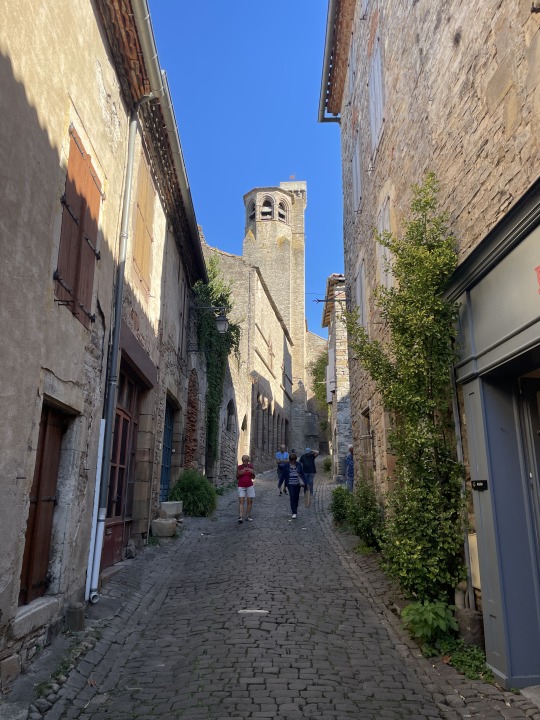
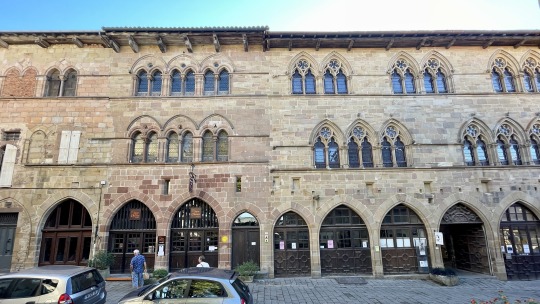
The economies of these towns fluctuated considerably over the centuries, from very wealthy trading, weaving, etc. towns to almost abandoned by the early 20th Century. Now they are restored and centers of crafts and arts, and considered among the most beautiful villages in France. But with minimal tourist traffic compared to places like Provence.
2 notes
·
View notes
Text
Unraveling the Splendor: Your Guide to the Best Family Holiday South of France
Introduction:
Embarking on a best family holiday south of France is akin to orchestrating a symphony of joy and relaxation. And when it comes to the epitome of elegance, charm, and cultural richness, the South of France stands out as an unrivaled destination. In this guide, we unveil the secrets to crafting the perfect family getaway in this picturesque region, including the ultimate stay: the best French château.
Exploring the Best Family Holiday Destinations in the South of France:
Discovering the Charms of Provence:
Provence beckons with its lavender fields, charming villages, and culinary delights. Delve into the vibrant markets of Avignon, wander through the historic streets of Aix-en-Provence, or simply bask in the serene beauty of the countryside.
The Riviera’s Allure:
The French Riviera, synonymous with glamour and sophistication, offers a plethora of family-friendly activities. From frolicking on the sun-kissed beaches of Nice to exploring the enchanting old town of Cannes, there's something for every member of the family.
Adventures in Languedoc-Roussillon:
Languedoc-Roussillon boasts a diverse landscape ranging from sandy beaches to rugged mountains. Explore the medieval fortress of Carcassonne, embark on a canoeing adventure along the picturesque River Gard, or simply unwind amidst the vineyards of the region.
Choosing the Perfect Accommodation: The Best French Château to Stay
Indulge in Opulence:
Nestled amidst sprawling vineyards or perched atop verdant hills, best french chateau to stay epitomize luxury and grandeur. Experience the allure of yesteryears as you step into a world of refined elegance and impeccable hospitality.
Family-Friendly Amenities:
From spacious suites to expansive gardens, the best French châteaux cater to the needs of families, offering a plethora of amenities to ensure a comfortable and memorable stay. Let the little ones frolic in dedicated play areas while you unwind by the poolside or indulge in a rejuvenating spa treatment.
Immersive Experiences:
Beyond lavish accommodations, French châteaux offer a myriad of immersive experiences for the entire family. Embark on a guided tour of the estate, partake in wine tasting sessions, or savor exquisite culinary creations prepared by renowned chefs.
Conclusion: Crafting Unforgettable Memories
A family holiday in the South of France is not merely a vacation; it's a journey of discovery, laughter, and cherished moments. From the sun-drenched beaches of the Riviera to the quaint villages of Provence, each destination beckons with its own unique charm and allure. And amidst this tapestry of beauty lies the quintessential stay: the best French château, where luxury and comfort intertwine to create an unforgettable experience for you and your loved ones.
As you plan your next family adventure, let the enchanting landscapes and timeless elegance of the South of France be your guide, and allow the best French château to be your sanctuary, where dreams are realized and memories are etched in the fabric of time.
0 notes
Text
🇫🇷Hello les amoureux du tire-bouchon. Et vous,aimez-vous les vins de Sablet en blanc ? 🇫🇷

🍇🍷AOP Sablet Côtes du Rhône Villages blanc 2022 gamme Horizon de la cave @legravillas.sablet 🍇🍷:
🍇 :
Grenache blanc
Roussanne
Viognier
Clairette
🏺:
Pressurage pneumatique très doux. Fermentation à basse température des jus pour garder le maximum d’arômes.
Élevage sur lie fine pendant 2 mois en cuve béton lui conférant toute sa complexité et sa
fraîcheur.
👁️ :
Une robe de couleur jaune brillante
👃 :
Un nez sur des notes de fleurs blanches et fruits jaunes.
💋 :
En savourant ce vin, nos papilles sont transportées dans un univers où la douceur et la vivacité se marient harmonieusement, créant un équilibre divin. Les notes enivrantes de pêches juteuses, de nectarines succulentes, d'abricots gorgés de soleil et de fleurs blanches nous enveloppent délicatement. Une sensation agréable persiste en bouche, tandis que la finale rafraîchissante de zestes de citron réveille nos papilles avec une gourmandise exquise.
📜En résumé📜 :
Un Sablet blanc raffiné, un vin délicieusement savoureux. Équilibré entre suavité et vivacité, il présente un rapport qualité-prix remarquable et sera idéal pour accompagner vos repas et apéritifs estivaux.
🧆Dégusté sur un Carpaccio de Saint Jacques 🧆.
🍷Quelques accords mets et vin possible avec cette cuvée🍷 : Briques de fromage de chèvre, Brandade de morue à la nîmoise, Boudin blanc aux morilles, Crevettes au safran,.....
📌N'oubliez pas, boire un canon c'est sauver
un vigneron📌.
🔞« L'abus d'alcool est dangereux pour la santé, à consommer avec modération »🔞 La plupart des vins ont été dégustés et recrachés. Dégustation non rémunéré.
#lesdegustationsugo #wine #winelover #vino #winetasting #winetime #winelovers #instawine #redwine #winestagram #winery #beer #wineoclock #vin #sommelier #love #vinho #foodporn #winelife #instagood #whitewine #cocktails #drinks #wein #foodie #wineporn #drink
_______________________________________
🇫🇷🗣️Description du Domaine 🇫🇷🗣️
La Cave Coopérative du Gravillas a vu le jour en mars 1935 à Sablet, grâce à une poignée de vignerons désireux de se regrouper pour vinifier leur production.
Fin 2020, après 85 ans d’existence, Le Gravillas a fusionné avec la Coopérative Agricole Provence Languedoc. Cette alliance marque un nouveau départ pour Le Gravillas et une toute nouvelle activité pour la CAPL qui a à cœur de se diversifier en préservant l’intérêt de ses adhérents.
À ce jour l’activité Cave représente une cinquantaine d'adhérents pour une production de 8 à 10 mille hL d'appellations de vins purs sur 250 hectares.
Le village de Sablet est un village dit "de vignerons" et Le Gravillas résonne un peu dans le cœur de tous les Sabletains. Un peu comme dans un monument historique, ils prennent plaisir à venir et déguster le vin dans la cave de leur village. La cave du Gravillas est une cave mythique, qui s’inscrit dans le paysage extraordinaire qui entoure le village de Sablet.
Le Gravillas pratique une vinification traditionnelle de ses crus et villages. Grâce aux différentes capacités des cuves, Le Gravillas peut faire une sélection parcellaire et s'adapte quotidiennement aux apports.
La récolte se segmente en 2 parties : une partie faite à la main et la seconde faite à la machine. La production est composée principalement de vins d'appellations dont 80% représentent du vin haut de gamme.
Au Gravillas le métier de vigneron se transmet de génération en génération. Mais le Gravillas c'est aussi : une histoire, un nom, une appellation, des terroirs, des hommes, des femmes, des salariés et des vignerons, mais surtout une cave familiale !
_______________________________________
🇫🇷Français dans les commentaires🇫🇷🇮🇹Italiano nei commenti 🇮🇹
🇺🇸Hello corkscrew lovers. And you, do you like white Sablet wines? 🇺🇸
🍇🍷AOP Sablet Côtes du Rhône Villages white 2022 range Horizon of the cellar @legravillas.sablet 🍇🍷:
🍇:
White Grenache
Roussanne
Viognier
Clairette
🏺:
Very gentle pneumatic pressing. Low temperature fermentation of juices to retain maximum aromas. Aging on fine lees for 2 months in concrete vats giving it all its complexity and freshness.
💰:
€9.20 / bottle
👁️:
A bright yellow colored dress
👃:
A nose with notes of white flowers and yellow fruits.
💋:
By savoring this wine, our taste buds are transported to a universe where sweetness and liveliness combine harmoniously, creating a divine balance. The intoxicating notes of juicy peaches, succulent nectarines, sun-drenched apricots and white flowers delicately envelop us. A pleasant sensation persists in the mouth, while the refreshing finish of lemon zest awakens our taste buds with exquisite deliciousness.
📜In summary📜:
A refined white Sablet, a deliciously tasty wine. Balanced between smoothness and liveliness, it offers remarkable value for money and will be ideal to accompany your summer meals and aperitifs.
🧆Tasted with a scallop carpaccio🧆.
🍷Some possible food and wine pairings with this vintage🍷: Bricks of goat cheese, Nîmes-style cod brandade, White pudding with morels, Shrimp with saffron,.....
📌Don't forget, drinking a barrel is saving
a winemaker📌.
🔞“Alcohol abuse is dangerous for your health, consume in moderation”🔞Most of the wines have been tasted and spat out. Unpaid tasting.
#lesdegustationsugo #wine #winelover #vino #winetasting #winetime #winelovers #instawine #redwine #winestagram #winery #beer #wineoclock #vin #sommelier #love #vinho #foodporn #winelife #instagood #whitewine #cocktails #drinks #wein #foodie #wineporn #drink
_____________________________________
🇬🇧🗣️Domain Description 🇬🇧🗣️
The Cave Coopérative du Gravillas was founded in March 1935 in Sablet, thanks to a handful of winegrowers wishing to come together to vinify their production.
At the end of 2020, after 85 years of existence, Le Gravillas merged with the Coopérative Agricole Provence Languedoc. This alliance marks a new start for Le Gravillas and a completely new activity for CAPL, which is keen to diversify while preserving the interests of its members.
To date, the Cellar activity represents around fifty members for a production of 8 to 10 thousand hl of pure wine appellations on 250 hectares.
The village of Sablet is a so-called “winegrowers” village and Le Gravillas resonates a little in the hearts of all Sabletains. A bit like in a historical monument, they enjoy coming and tasting the wine in their village cellar. The Gravillas cellar is a legendary cellar, which is part of the extraordinary landscape which surrounds the village of Sablet.
Gravillas practices traditional vinification of its wines and villages. Thanks to the different capacities of the tanks, Le Gravillas can make a plot selection and adapts daily to the inputs.
The harvest is divided into 2 parts: one part made by hand and the second part made by machine. Production is mainly composed of appellation wines, 80% of which represent high-end wine.
In Gravillas, the winegrower's profession is passed down from generation to generation. But Gravillas is also: a history, a name, an appellation, terroirs, men, women, employees and winegrowers, but above all a family cellar!
_______________________________________
🇮🇹Ciao amanti dei cavatappi. E tu, ti piacciono i vini bianchi Sablet? 🇮🇹
🍇🍷AOP Sablet Côtes du Rhône Villages bianco gamma 2022 Orizzonte della cantina @legravillas.sablet 🍇🍷:
🍇:
Grenache bianco
Roussanne
Viognier
Clairette
🏺:
Pressatura pneumatica molto delicata. Fermentazione dei succhi a bassa temperatura per trattenere i massimi aromi.
Affinamento sulle fecce fini per 2 mesi in vasche di cemento donandogli tutta la sua complessità e freschezza.
💰:
€ 9,20 / bottiglia
👁️:
Un vestito dal colore giallo brillante
👃:
Al naso con note di fiori bianchi e frutti gialli.
💋:
Assaporando questo vino, le nostre papille gustative vengono trasportate in un universo dove dolcezza e vivacità si uniscono armoniosamente, creando un equilibrio divino. Le note inebrianti di pesche succose, nettarine succulente, albicocche baciate dal sole e fiori bianchi ci avvolgono delicatamente. In bocca persiste una piacevole sensazione, mentre il finale rinfrescante della scorza di limone risveglia le nostre papille gustative con squisita bontà.
📜In sintesi📜:
Un raffinato bianco Sablet, un vino deliziosamente gustoso. In equilibrio tra morbidezza e vivacità, offre un notevole rapporto qualità prezzo e sarà ideale per accompagnare i vostri pasti e aperitivi estivi.
🧆Degustato con un carpaccio di capesante🧆.
🍷Alcuni possibili abbinamenti enogastronomici con questa annata🍷: Bricks di formaggio di capra, Brandade di merluzzo alla Nîmes, Budino bianco alle spugnole, Gamberetti allo zafferano,.....
📌Non dimenticare, bere una botte fa risparmiare un vignaiolo📌.
🔞“L'abuso di alcol è pericoloso per la salute, consumalo con moderazione”🔞La maggior parte dei vini è stata assaggiata e sputata. Degustazione non retribuita.
_______________________________________
🗣️🇮🇹Descrizione i Dominio 🗣️🇮🇹
La Cave Coopérative du Gravillas nasce nel marzo del 1935 a Sablet, grazie al desiderio di un pugno di viticoltori di riunirsi per vinificare la propria produzione.
Alla fine del 2020, dopo 85 anni di esistenza, Le Gravillas si è fusa con la Coopérative Agricole Provence Languedoc. Questa alleanza segna un nuovo inizio per Le Gravillas e un'attività completamente nuova per CAPL, che desidera diversificarsi preservando gli interessi dei suoi membri.
Ad oggi l'attività della Cantina rappresenta una cinquantina di soci per una produzione da 8 a 10 mila hl di vino in purezza a denominazioni su 250 ettari.
Il villaggio di Sablet è un cosiddetto villaggio “di viticoltori” e Le Gravillas risuona un po’ nel cuore di tutti i Sabletain. Un po' come in un monumento storico, amano venire a degustare il vino nella cantina del loro paese. La cantina Gravillas è una cantina leggendaria, che si inserisce nello straordinario paesaggio che circonda il villaggio di Sablet.
Gravillas pratica la vinificazione tradizionale dei suoi vini e dei suoi villaggi. Grazie alle diverse capacità dei serbatoi, Le Gravillas può effettuare una selezione degli appezzamenti e adattarsi quotidianamente agli input.
La raccolta è divisa in 2 parti: una parte fatta a mano e la seconda parte fatta a macchina. La produzione è composta principalmente da vini a denominazione, l'80% dei quali rappresentano vini di fascia alta.
A Gravillas, il mestiere del viticoltore si tramanda di generazione in generazione. Ma Gravillas è anche: una storia, un nome, una denominazione, terroir, uomini, donne, dipendenti e viticoltori, ma soprattutto una cantina di famiglia!
0 notes
Text

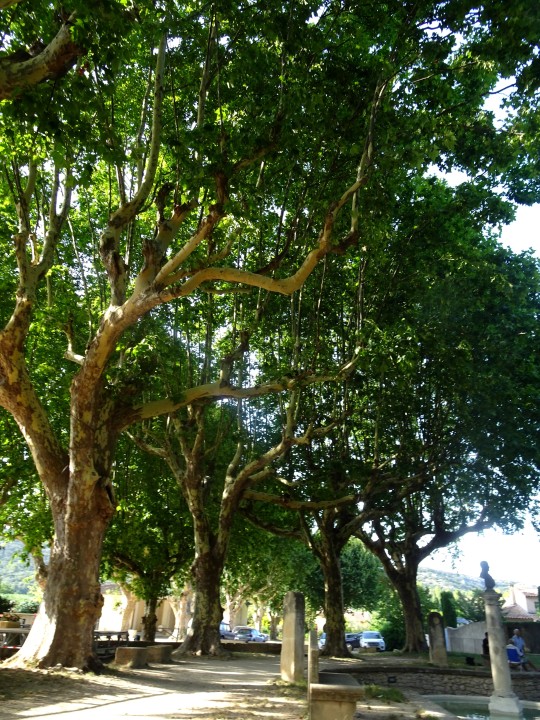
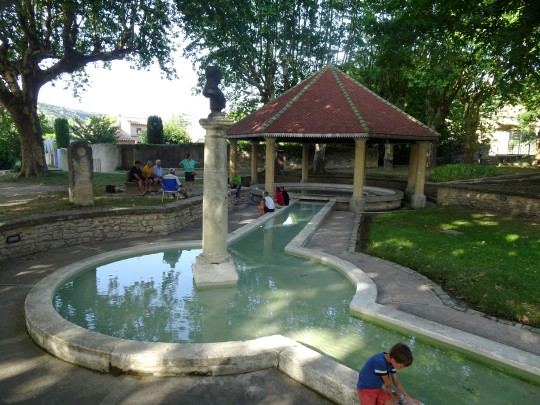



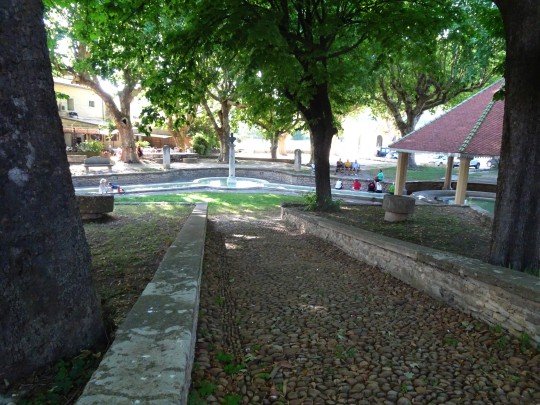
La semaine dernière, j'ai retrouvé mes amis Julien et Katie à Remoulins dans le Gard (Languedoc).
Le petit village de Saint-Bonnet, dans le Gard, mais on sent l'ambiance provençale : platanes, fontaine, vieux sur leur banc...
#provence#languedoc#gard#saint-bonnet#saint-bonnet du gard#platane#fontaine#kiosque#village#poisson rouge
8 notes
·
View notes
Text

WINE LOVERS/STAGE ARTS CLUB 2020 PARIS
ART GOOD WINE GOOD FLESH GOOD TABLE
FREE MEMBER REGISTRATIONS
https://www.artsenscene2020.com/wineloversclub
https://www.facebook.com/groups/clubwinevin
https://www.artsenscene2020.com/vins-bordeaux
https://www.artsenscene2020.com/bourgognevins
https://www.artsenscene2020.com/rhone-vin
https://www.facebook.com/groups/clubwinevin
https://www.artsenscene2020.com/vin-languedoc-roussillon
https://www.artsenscene2020.com/vin-vallee-de-la-loire
https://www.artsenscene2020.com/vin-du-monde
https://www.artsenscene2020.com/champagne
https://www.artsenscene2020.com/vins-de-provence
https://www.artsenscene2020.com/cognac-armagnac-rhum
https://www.artsenscene2020.com/whisky
0 notes
Text
Good morning TUMBLR - March 9th - 2024
''Mr. Plant has owed me a shoe since July 5, 1971."
Ch. XI.1 - Morocco - 1989 - 1991


The ferry ''Marrakech Express'' in the port of Sete - France
TRIP TO MOROCCO
So on Dec 18th 1989 I left Italy, heading towards the French port of Sete, where I was supposed to board the ferry ''MARRAKECH EXPRESS'' to Tangier. My Range Rover was packed to capacity, since in a few months my wife and son would be joining me by plane. And so in addition to my luggage, there were suitcases and boxes with their clothes, shoes and toys. I filled the tank at the nearby petrol station and paid the considerable sum (at the time) of 94,000 lire!
In any case, the journey was smooth and problem-free till Sete: Autostrada dei Fiori, Menton, Nice, Aix en Provence, Arles, Montpellier and than Sete, an important port in Languedoc region.
I arrived there on a gray and foggy afternoon, around 3.00 pm – no sign of the Marrakech Express ferry at the port. Near the dock, a local fisherman was repairing a net.
''Sorry Sir…is it here where the ferry to Tangier leaves from?''
''The Marrekesh Express? ''
Yes…….
Ahh well yes…but it's already set sail…'
How come did it already set sail? It's only 3. 10 pm..?
Yes but… the Captain said they'll find heavy seas on the route….
So???
So he decided to leave early…… ''
WTF....….
And .....sorry… may I ask you when does the next ferry leave?
Ahh….well...........in seven days, next Tuesday……
Suddenly the kilometers I would have had to travel by car went from 1,100 to 3,600!! You can imagine my state of mind, to tell the truth I was more angry than worried: after all it was a matter of retracing roads that I had traveled several times in previous years, and with cars that performed much less well than the Range Rover I had now.
After a few minutes of confusion, I was already on the highway to get back to the Autoroute du Sud.
The journey to South - alone and on a ''winter'' highway was unparalleledly boring - I crossed the border at La Jonquera, and than via Girona, Barcelona, Valencia, Almeria, Malaga and then finally Algeciras. Again I chose the ferry to Ceuta, since it was the first to leave. Quiet crossing, even I had to stay indoors, given the cold wind blowing over the Strait of Gibraltar. The disembarkation operations were faster than usual, because in winter few people are crossing the Strait. It was just after 2.00 in the afternoon, and the day was grey. I soon reached the Moroccan border post and entered the border police offices, where I immediately noticed the presence of couple of Italians (which was quite unusual for that time of the year). Two rather elderly men, who were animatedly discussing each other in MY DIALECT!!! Yes, with that particular inflection, which replaces the ''s'' with ''z'' and the ''a'' with ''ooo''. I stayed for a few seconds listening to them, and than I realized that I had forgotten my registration document in the car, necessary for transit procedures. I then suddenly said, without giving the two Italians time to reply:
''Could you please keep my luggage a moment? I'll be right back! (Talking in common dialect)
The two looked at me in shock!! But I had already left the office, leaving them speechless.
Upon returning, after a few moments, the two guyscontinued to look at me as if I were an alien.
''Good afternoon… I understand that you're coming from my area'' I said
One of them, suddenly cautious: ''why you said so …from where are you''????
''Well……Just few km North of Milan.....''
''We...we are from Monza !! You know where's located the famous racing circuit!!???
Well – I replied after the introductions – (One's name was Perego and the other Fumagalli) May I ask you what are you doing at Spain-Marocco border on Dec 20th?
(All this conversation in pure North Milan's dialect).
Ahhh… Perego said - ……we're traveling with two campers you know– when it starts to get too cold in Munza, we are used to pack and go heading South – so in addition to avoid the cold season, we save lot of money house's heating''.
At this point, once the customs operations were completed, we went out into the border parking and Perego invited me 'to have a cup of coffee' in his camper.
Hey…Italian expresso ehh…!!!
I willingly accepted, and therefore got to know the respective ladies - who, too, showed amazement in meeting an Italian (even from their very same area) 2,000 km away from Italy and in that particular period of the year. We had a chat inside their beautiful camper, sipping good Italian coffee and than Perego asked:
''And you, where are you going''?
''I'm on the way to Agadir'' - I said
''Than we'll see you there because we'll be still around for at least 3 months ehh…''
Okay guys, I'll be for at least 2 years, therefore I'll see you again next year… if you'll come back''.
That's caused an embarrassing glance between Perego and Fumagall, which their faces were expressing all the disappointment of not to be ''the ones who hang around the most.....''
So we shaked our hands, promising to see each other again in a couple of months at the campsite South of Agadir.
I than took the state road, heading South, passing through Tetouan, the Rif region where the road is flanked by extensive cultivations of kif, the Moroccan's renowned''smoke''.
Once past Rabat and Casablanca, instead of turning towards Marrakech, I decided to continue along the coastal road.
I than saw El Jadida (the ''New'' in the local language) and than Oualidia, the city that has made oyster cultivation its main livelihood. And then down to the splendid Essaouira, a city founded by the Carthaginians in the 2nd century BC, and which regained strength when the Portuguese settled there in the 15th century, renaming it Mogador. In the 17th century the Arch. Frenchman Theodore Cornut, on behalf of Sultan Muhammad III, redesigned the entire layout of the city - wide tree-lined avenues were created, hence the new name of Essaouira (the well-designed).
On the bastions of the walls surrounding the city, called '' Skala'', overlooking the Atlantic Ocean, Orson Welles set his famous film ''Othello''.
The coast between Essaouira and Agadir is truly wild: sometimes it overhangs directly into the Atlantic, other times the road climbs the mountain, passing through the argan forest, an endemic plant that grows only in this region and on the other side of the 'Ocean, in Brazil. Particularly spectacular is the stretch of coast of Tamri, which runs alongside the 'Parque National de Tamri' - This national park is a paradise for birdwatchers and also offers breathtaking views of the ocean. The park is home to very rare bird species believed to survive only in Morocco, including the Northern bald ibis.
Finally towards late afternoon I came in sight of the bay of Agadir: the road makes a final turn behind the mountain, and suddenly the white of Agadir makes its appearance. I stopped on the side of the road, because after over 3,000 kilometers I wanted to enjoy this moment in peace. Great impression, of course - and satisfaction, in the sense that I had reached the destination alone and without problems. And while I was there fully enjoying of having reached my destination, two cyclist racers appeared! They also stopped in the lay-by area where I had parked the Range Rover, also admiring the view of Agadir. That's how I had the opportunity to read the writing on their shirts, and to my amazement I read ''ASD Brugherio Sportiva''!!!! I mean… after having run all those roads, at a sidereal distance from home, who do I meet? Two Moroccan cyclists, that, after a chat, I discover they were living in Brugherio, at the walking distance from my home in Italy! They were coming from Casablanca and in two days they had covered the 460 kilometers that separate Casablanca from Agadir, arriving at that lay-by area almost at the same time as I had arrived from Italy!
Life is really made up of crazy coincidences....or not? I don't know….

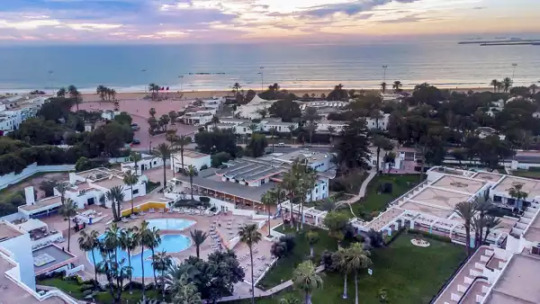
AGADIR
Agadir was founded by Portuguese sailors in 1505 with the name of Santa Cruz do Cabo de Gué. In 1541 it became a territory of Morocco and in 1911 at the height of Franco-German tension Germany sent the warship Panther in front of the city. The incident (known as the Agadir Crisis) threatened to spark war between the two countries and caused France to declare Morocco its protectorate in 1912.
A serious earthquake devastated the city at 11.40pm on February 29, 1960. The tremor lasted 15 seconds, with a magnitude of 5.7 on the Richter scale - with its epicenter right under the city, hence the many deaths, despite the relatively low magnitude. In the neighborhoods of Founty, Yachech and the Kasbah, all buildings were destroyed or seriously damaged, and 95% of the population of these areas remained buried under the rubble. In the Talborjt district, 90% of the buildings were destroyed or severely damaged, while the new town and the waterfront were relatively spared. In the end, around 15,000 dead were counted, that is, around a third of the population, and around 25,000 wounded.
The kasbah was completely abandoned, and the city was built on the plain, facing the sea.
King Mohammed V, visiting the city immediately after the earthquake, spoke of ''Divine punishment'' following the sinful conduct of the inhabitants of Agadir.
My Company mission team on the construction site for the new airport was made up of:
Eng. Alfonzo, Head of Mission - He was a very particular character. Argentinian by birth, son of an Italian immigrant, his mother of Indian ethnicity, native of the province of Santa Rosa.
Alfio Curreli – Supervisor of aeronautical aspects - Sardinian from Quartu Sant'Elena, in possession of a pilot's license for tourist aircraft.
Myself – looking after the civil works of the project
Antonio Argento – taking care of the electro-instrumental of project's aspect. Sicilian from Palermo, boasted a relationship with the famous director.
Then there were external collaborators, among which one stood out: Architect Bozon, a Frenchman who had lived in Morocco since long time, so much so that he was now mistaken for Moroccan.
The new airport was under construction about 20 km from South of Agadir - Main Contractor was the famous French company Bouygues, which had snatched the contract from SAMPROGETTI thanks to the support of the French Government - which had guaranteed a twenty-year loan of 300 million dollars to Morocco, at the preferential rate of 3%. In any case, the Moroccan Ministry of Transport had insisted that SAMPROGETTI remain as ''Ingegneur Conseil'' (Works Management Supervision) as the original Italian design was still in place.
The airport area was located in an argan trees forest, which required the uprooting and subsequent replanting of approximately 6,000 trees before proceeding with earth movement.
PROJECT HALT
About 8 months after the start of work - and with the structures of the airport and control tower already erected, a ''Royal Order'' suddenly arrived to stop all construction activities.
King Hassan II's architect, a Frenchman named Penseau, had secretly flown over the construction site a few days earlier. Once back in Rabat, Arch. Penseau had asked for an audience with His Majesty the King. During the meeting Penseau had reported to King Hassan II his concern that the new Agadir airport ''did not present any 'Marocain' cache''. Practically Penseau believed that the tourists, once off the plane, should immediately realize that they arrived in Morocco on the first sight of the airport. Contrary, the Italian design envisaged an airport that could easily be in any Western city. Arch. Penseau wasn't wrong, but infact this was actually his last desperate attempt to get back into one of the greatest project being carried out in the country during those years. It is worth remembering that the Architect Penseau was the designer and director of works of the Great Hassan II Mosque of Casablanca, a gigantic work that employed more than 8,000 Moroccan artists and artisans then. This gives the measure of how egocentric Penseau was, not content with already being at the center of a megaproject, but also wanting to have his hand in the new Agadir airport.
So at the beginning of March the construction site was stopped, awaiting decisions from His Majesty the the King. The decision arrived after about 3 months, and it was a total acceptance of Pinseau's suggestions. The terminal completely changed its appearance, taking on the famous ''Marocain cache'' invoked by the architect. Furthermore, a ''Pavilion Royal'' was added (a building reserved for the Royal Family and its guests upon departure/arrival). As a partial excuse, it must be said that the Sovereign of Morocco, during the years of his reign, had suffered two serious attacks, including one while he was on board his personal DC9, while returning from France. Therefore the security measures against him were particularly stringent.
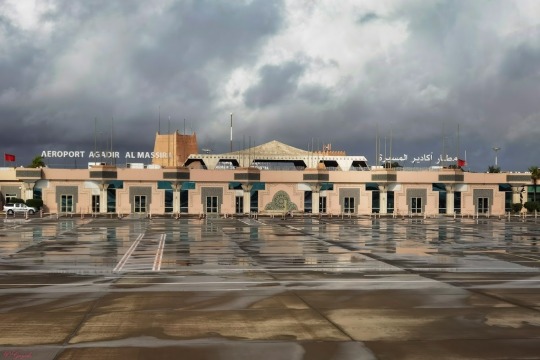
''Al Massira International Airport'' - Agadir, Morocco

''Le Pavillon Royal''
LIFE IN AGADIR
After couples of months I was still sleeping at the Anezi hotel, waiting to find suitable house. From financial point of view, the mission suffered a problem on money's transfer from Italy to Morocco to pay for all the current services. Speaking of payments, the Anezi hotel Manager appeared particularly nervous (he was a Moroccan of the Jewish religion and in theory the hotel policy required the invoices to be paid every 15 days). Director did not fail to show all his uneasiness since we were not paying any hotel's invoice after months. . A morning Eng. Alfonzo and I were going down the imponent hotel staircase, which led directly into the large entrance hall. Out of the corner of my eye I glimpsed the hotel manager leaving the reception desk and rushing towards us. I whispered to Alfonzo ''The Director… watch out for the Director…'' He reached us at the staircase landing, but as he was about to start speaking Alfonzo with the most classic coup de teatre hit him with:
DIRECTOR!! This is already the second time this has happened!!! What happened Mr. Alfonzo??? - said the Director with a worried face. Alfonzo: ''Yesterday afternoon I returned from work, and in my room there was no trace of the fresh fruit basket hat you have to have deliver daily!!! THIS IS INADMISSIBLE, DEAR DIRECTOR! MAKE SURE THAT THIS UNFORTUNATE EVENT IS NOT REPEATED IN THE FUTURE! AHHH.......HAPPY JOURNEY!
And we left the place without looking back, but sure that the Director was looking at us transfixed at the large entrance door of the hotel, repeating his ''Oui Messieurs …oui…sans douts…excuse' moi Messieurs…bonne journee Messieurs' '
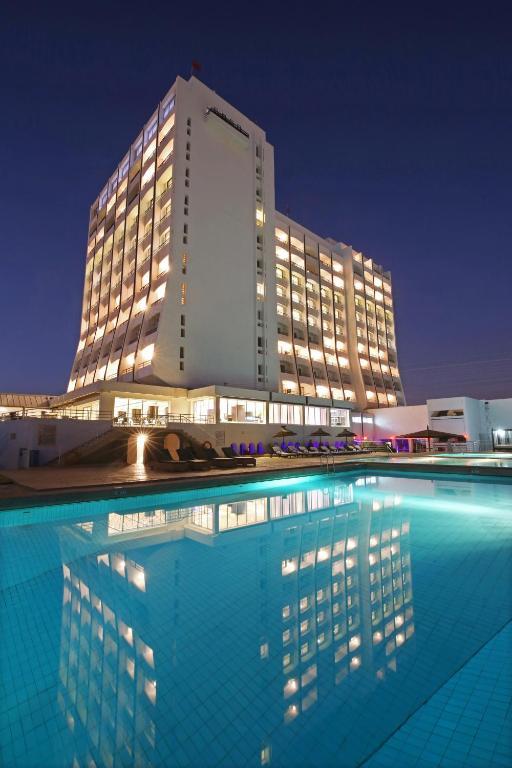
Hotel Anezi - Agadir, Morocco.

MADAME RACHIDA.
In the meantime, the fact ee were looking for houses to rent had spread around the city, and every evening alleged ''Real Estate Agents'' were waiting for us at the gate, upon our return to the hotel. An initial selection was made, excluding the proposals that weren't right for us, and than we set off to check the conditions of the proposed houses. Very often it happened that the same house was offered several times, by different brokers, on different days. This ordeal lasted about 3 months, during which we visited half of Charaf, the residential neighborhood where almost all the available terraced houses were concentrated. In the end, I decided to accept Mme Rachida's rental proposal.
She was the widow of a Royal Armed Forces officer who had crashed in his helicopter a few years earlier. Upon the disgrace, the FAR (Force Armee Royal) had given M.me Rachida excellent compensation: in addition to the pension, she had been gifted the terraced house that I would rent, a car with a driver always available, and the possibility of stocking up at the Army store free of charge. I Ivisited the house on a late Saturday afternoon. At the moment it was still occupied by a Saudi tourist, who would be leaving it in a few days, after a 3-month stay.
The house was a made up by ground floor and first floor, in good condition, with a small garden and a little courtyard at the back. I accepted even though the rental was higher, as much as 5,000 Dihrams. The final negotiation was directly with Mme Rachida, to woum I asked to provide a washing machine for the house.
Mme. Rachida: ''And why do you want the washing machine? Would you like to say that you want to take away from a good ''good'' Moroccan the possibility of a job and a salary, with which she will probably also help the family to survive?
Me: ''Of course not, Mme. Rachida! Maybe you have someone you know to suggest to us?
Of course I have her ! said Mme Rachida
That's how ''la bonne'' (as it is called in French) Saadia joined us - and it was a real stroke of luck: the girl, despite having practically never left the house in her 27 years of life, turned out to be very good at all the household chores, in preparing meals, and subsequently in taking care of my son, which was increasingly revealing itself to be a real naughty boy.
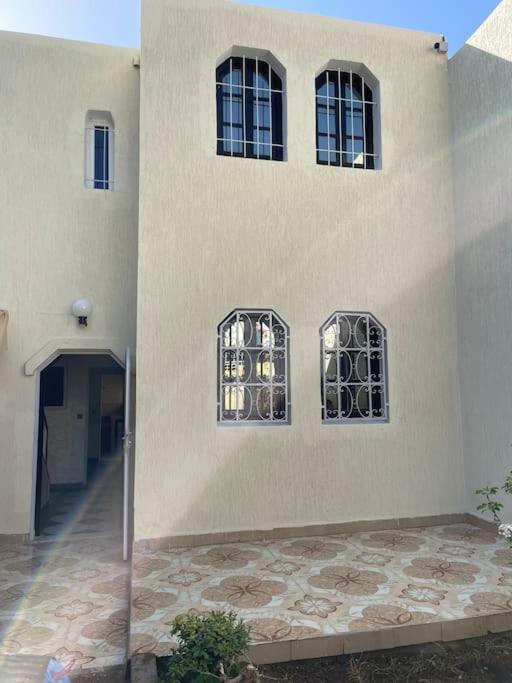
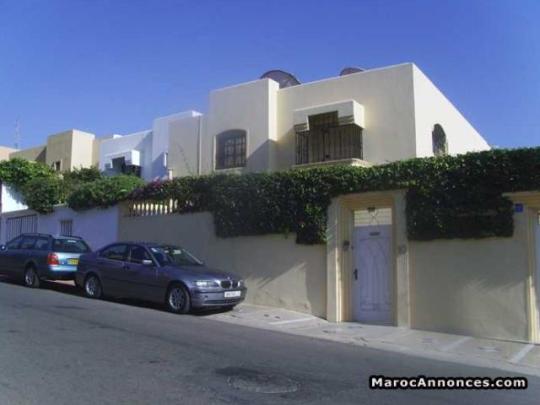
Charaf - Agadir's neighborhood.
1 note
·
View note
Text
Miss France 2024 est Eve Gilles Miss Nord-Pas-de-Calais

L’élection Miss France 2024 a eu lieu ce samedi 16 décembre 2023 à Dijon (21-Côte-d'Or) et en direct sur TF1. Eve Gilles Miss Nord-Pas-de-Calais a été élue Miss France 2024. Audrey Ho-Wen-Tsaï Miss Guyane est 1ère Dauphine, Adelina Blanc Miss Provence est 2ème Dauphine, Jalylane Maes Miss Guadeloupe est 3ème Dauphine, Maxime Teissier Miss Languedoc est 4ème Dauphine. Sonia Coutant Miss Franche-Comté 2023 n'a pas été parmi les 15 premières sélectionnées.
Read the full article
0 notes
Text
Road Trip - Tour de France
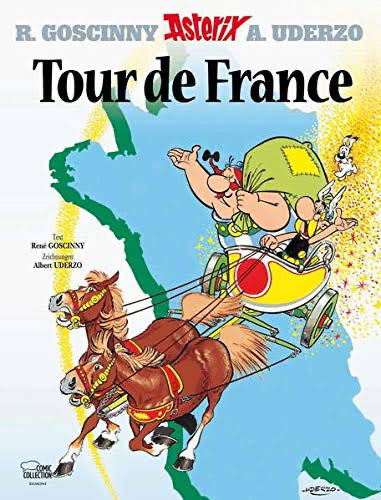
In the mid 90's I bought a spacious expedition tent. For trying it out, my best friend and I decided ad hoc to do a “Tour de France”. Just to get out. His younger cousin, who was visiting during the holidays, joined our exclusive club. The trip took us to Annecy, to the Camargue, to Sete (Languedoc), to the Provence and along the French and Italian Riviera via South Tyrol back home. Sometimes the best experiences come from spontaneous ideas.
-
Mitte der 90er kaufte ich mir ein geräumiges Expeditionszelt. Um es auszuprobieren, haben mein bester Freund und ich spontan beschlossen, eine „Tour de France“ zu machen. Nur um rauszukommen. Seine jüngere Cousine, die in den Ferien zu Besuch war, trat unserem exklusiven Club bei. Die Reise führte uns nach Annecy, in die Camargue, nach Sete (Languedoc), in die Provence und entlang der französischen und italienischen Riviera über Südtirol zurück nach Hause. Manchmal entstehen die besten Erlebnisse aus spontanen Ideen.
-Simplicius Simplicissimus
#traveling#reisen#road trip#france#frankreich#annecy#camargue#provence#french riviera#italian riviera#south tyrol#französische riviera#italienische riviera#südtirol#simplicius simplicissimus
0 notes
Text
names of the old french provinces the way they’re commonly translated into portuguese:
Île-de-France -> Ilha de França
Berry (no translation)
Orléanais -> Orleanês
Normandie -> Normandia
Languedoc -> Languedoque (or, more uncommonly, Linguadoque)
Lyonnais -> Lionês (or, more uncommonly, Lyonês)
Dauphiné -> Delfinado
Champagne -> Champanha(e)
Aunis (no translation)
Saintonge (no translation)
Poitou (no translation)
Guyenne et Gascogne -> Guiena e Gasconha
Bourgogne -> Borgonha
Picardie -> Picardia
Anjou -> usually untranslated, rarely “Anju”
Provence -> Provença
Angoumois (couldn’t find a translation, though imo it’s unlikely this word wouldn’t be translated)
Bourbonnais -> Borbonês or Burbonês
Bretagne -> Bretanha
Maine (no translation)
Touraine -> Turene
Limousin -> Limusino
Foix (no translation)
Auvergne -> Auvérnia, Alvérnia or Arvénia
Béarn -> Bearne
Alsace -> Alsácia
Artois -> Artésia
Roussillon -> Rossilhão
Flandres (no translation, but never spelled as just “Flandre”)
Franche-Comté -> Franco-Condado
Lorraine -> Lorena
Corse or Corsica -> Córsega
Nivernais (couldn’t find a translation, but again think likely it must’ve been translated).
#posting it here just so I don’t have this huge list cluttering my notes :p#not sure it’s entirely accurate but I tried#l’alouette#ratos
0 notes